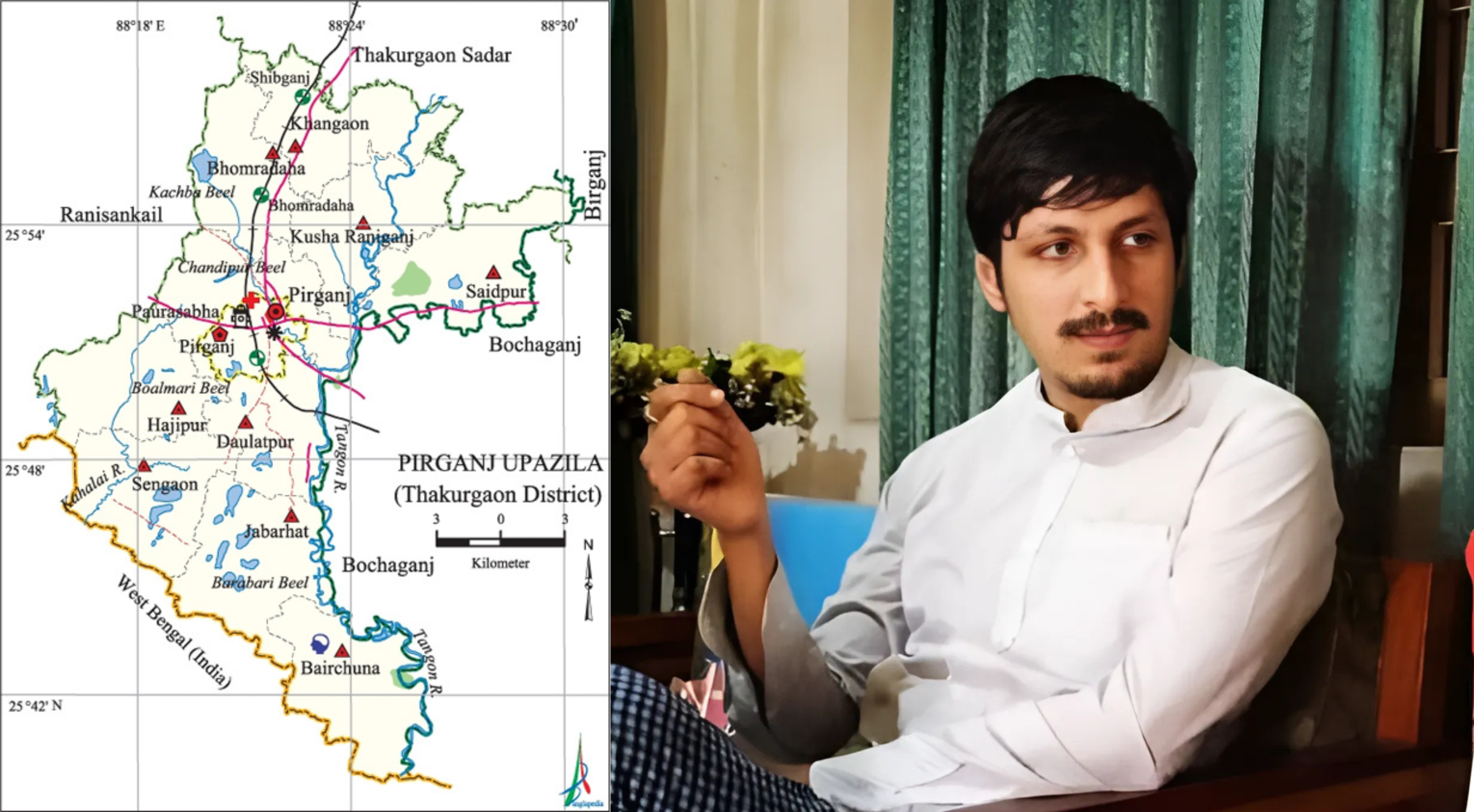“You must leave home not to escape, but to return being armed with something more than rage.”
I come from Pirganj, Thakurgaon — a quiet town in the northern folds of Bangladesh, where political memory lives longer than politicians and silence often speaks louder than slogans. In Pirganj, to speak plainly is to invite suspicion; to ask questions is to risk being branded. Even the simple act of reading, or taking interest in law and politics, often triggers alarm: What’s he really after?
They’re not wrong to ask. But they’re not ready for the answer.
I’ve chosen — for now — not to play into the theatre of early arrival. I’ve stepped back, not because I am afraid, but because I believe resistance deserves preparation. I walk the streets of Dhaka with a different mission: to study law not as a career, but as a counter-weapon to the injustices I witnessed in my childhood.
The land disputes that shattered families.
The forged signatures that robbed sisters of inheritance.
The party-backed miscreants who turned village clubs into fiefdoms.
These were never isolated incidents.
These are symptoms of something deeper — a republic in fracture.I write not from bitterness, but from clarity. I write because I know that the justice system doesn’t bend for people like us unless we learn how to bend it back. And that begins with study, with patience, with refusing to be baited by the applause of premature glory.
What I saw in Pirganj wasn’t just familial conflict. It was legal power used as a weapon by those who could afford it, against those who could not. And I understood early on: if the wound begins in law, the healing must begin there too.
But let me be clear — this is not exile.
This is strategy.There are lessons that must be learned in silence.
And credentials that must be earned before they are shouted through megaphones.So I do not go to local meetings anymore, nor attend village feasts to be sized up by those who see ambition as a threat. Not yet. I stay away — not out of shame, but out of design.
Because when I return — whether to Pirganj or to Parliament — I will not be asking for permission.
The Long Game: Conflict, Law, and Local Repair
Yet, in this strategy, I’ve also come to a difficult realization. As a student of both law and conflict analysis, I know the courts alone cannot hold all our answers. Much of rural Bangladesh’s disputes — especially over land — are more cultural than legal. These are fights born not just of paperwork, but of pride, patriarchal memory, and power dynamics stitched deep into local soil.
Take land inheritance cases in North Bengal: many involve not just legal title, but moral claims, ancestral debts, verbal promises, and political protection. In such a climate, even the most “just” legal ruling can deepen wounds if delivered without cultural sensitivity.
That’s where my real interest now lies — not just in legal reform, but in crafting hybrid justice systems — where statutory law meets indigenous conflict resolution. Bangladesh once thrived on systems like shalish, boithoki, and community mediation — local traditions that offered speed, familiarity, and a chance for restoration.
Yes, these systems had flaws and were sometimes captured by patriarchy or local power brokers. But with reformed principles — trained neutral mediators, legal oversight, gender sensitivity — they could be powerful again.
I envision a legal future where land disputes don’t drag for decades in lower courts, but get mediated by trusted local elders alongside law graduates. Where justice isn’t just delivered, but understood. Where the village doesn’t fear the law — it participates in it.
Toward a New Legitimacy
This article is not a manifesto. It’s the beginning of a conversation — about how we might fight smarter, build slower, and return stronger. I’ve left Pirganj not to forget it, but to return to it — armed not with slogans, but with strategy. Not just with rage, but with remedies.
Lahul Galib
Conflict Analyst
University of Dhaka

